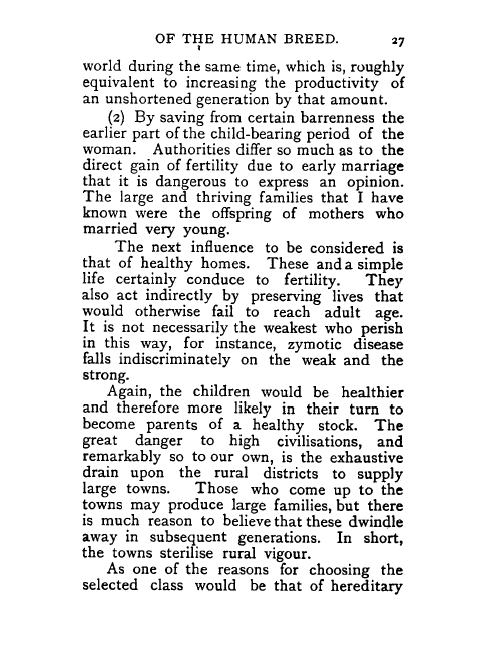OF THE HUMAN BREED. 27
world during the same time, which is, roughly equivalent to increasing the productivity of an unshortened generation by that amount.
(2) By saving from certain barrenness the earlier part of the child-bearing period of the woman. Authorities differ so much as to the direct gain of fertility due to early marriage that it is dangerous to express an opinion. The large and thriving families that I have known were the offspring of mothers who married very young.
The next influence to be considered is that of healthy homes. These and a simple life certainly conduce to fertility. They also act indirectly by preserving lives that would otherwise fail to reach adult age. It is not necessarily the weakest who perish in this way, for instance, zymotic disease falls indiscriminately on the weak and the strong.
Again, the children would be healthier and therefore more likely in their turn to become parents of a healthy stock. The great danger to high civilisations, and remarkably so to our own, is the exhaustive drain upon the rural districts to supply large towns. Those who come up to the towns may produce large families, but there is much reason to believe that these dwindle away in subsequent generations. In short, the towns sterilise rural vigour.
As one of the reasons for choosing the selected class would be that of hereditary

